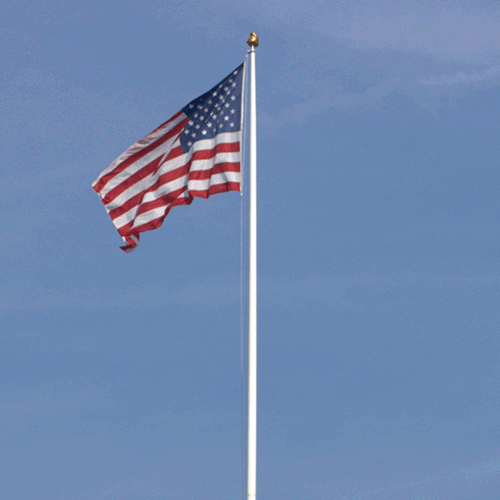West Virginia State Board of Education v. Barnette
Historical
In West Virginia State Board of Education v. Barnette (1943), the U.S. Supreme Court held that requiring public school children to salute the American flag and recite the pledge of allegiance violates the First Amendment. The 6-3 decision was fittingly announced on Flag Day.
The Facts of West Virginia State Board of Education v. Barnette
In 1942, the West Virginia State Board of Education passed a resolution ordering that the salute to the flag become “a regular part of the program of activities in the public schools,” and that all teachers and pupils “shall be required to participate in the salute honoring the Nation represented by the Flag.” The resolution specifically required the saluter to keep the right hand raised with palm turned up while the following is repeated: “I pledge allegiance to the Flag of the United States of America and to the Republic for which it stands; one Nation indivisible, with liberty and justice for all.”
Failure to conform was considered “insubordination” and was dealt with by expulsion. In addition, an expelled child was considered “unlawfully absent” and could be charged as a delinquent. The parents of the child were also subject to prosecution and, if convicted, could be fined and jailed.
The Barnette family filed suit in federal court for themselves and others similarly situated, asking its injunction to restrain enforcement of these laws and regulations against Jehovah’s Witnesses. Under their religion, Jehovah’s Witnesses are prohibited from saluting symbols, such as the American flag.
The Majority Decision in West Virginia State Board of Education v. Barnette
By a vote of 6-3, the majority held that a compulsory salute and slogan violated the First Amendment. The decision in West Virginia State Board of Education v. Barnette expressly overruled the Court’s prior decision in Minersville School District v. Gobitis, in which the U.S. Supreme Court rejected a religious objection to the mandatory flag salute and pledge of allegiance.
“If there is any fixed star in our constitutional constellation, it is that no official, high or petty, can prescribe what shall be orthodox in politics, nationalism, religion, or other matters of opinion or force citizens to confess by word or act their faith therein,” Justice Robert Jackson wrote for the majority.
In reaching its decision, the majority further rejected the notion that compulsion is a permissible means of achieving national unity. Justice Hugo Black wrote in a concurring opinion, “Love of country must spring from willing hearts and free minds, inspired by a fair administration of wise laws enacted by the people’s elected representatives within the bounds of express constitutional prohibitions.”
In rejecting Gobitis, in which the Court held that dissenters should protest the law at the ballot box, Justice Jackson highlighted that the fundamental freedoms established by the Bill of Rights, such as the Freedom of Speech, were intentionally placed out of reach from political majorities. He explained:
The very purpose of a Bill of Rights was to withdraw certain subjects from the vicissitudes of political controversy, to place them beyond the reach of majorities and officials and to establish them as legal principles to be applied by the courts. One’s right to life, liberty, and property, to free speech, a free press, freedom of worship and assembly, and other fundamental rights may not be submitted to vote; they depend on the outcome of no elections.
Previous Articles
SCOTUS Wraps Up Oral Arguments for the Term
by DONALD SCARINCI on May 17, 2022
The U.S. Supreme Court has concluded its oral arguments for the October 2021 Term. The justices hea...
SCOTUS Rules Censure of Elected Board Member Didn’t Violate First Amendment
by DONALD SCARINCI on May 10, 2022
In Houston Community College System v. Wilson, 595 U.S. ____ (2022), the U.S. Supreme Court held th...
Supreme Court Breach Is Not the First Involving Roe v. Wade
by DONALD SCARINCI on
The recent disclosure of Justice Samuel Alito’s decision purporting to overturn Roe v. Wade is ar...
The Amendments
-
Amendment1
- Establishment ClauseFree Exercise Clause
- Freedom of Speech
- Freedoms of Press
- Freedom of Assembly, and Petitition
-
Amendment2
- The Right to Bear Arms
-
Amendment4
- Unreasonable Searches and Seizures
-
Amendment5
- Due Process
- Eminent Domain
- Rights of Criminal Defendants
Preamble to the Bill of Rights
Congress of the United States begun and held at the City of New-York, on Wednesday the fourth of March, one thousand seven hundred and eighty nine.
THE Conventions of a number of the States, having at the time of their adopting the Constitution, expressed a desire, in order to prevent misconstruction or abuse of its powers, that further declaratory and restrictive clauses should be added: And as extending the ground of public confidence in the Government, will best ensure the beneficent ends of its institution.




